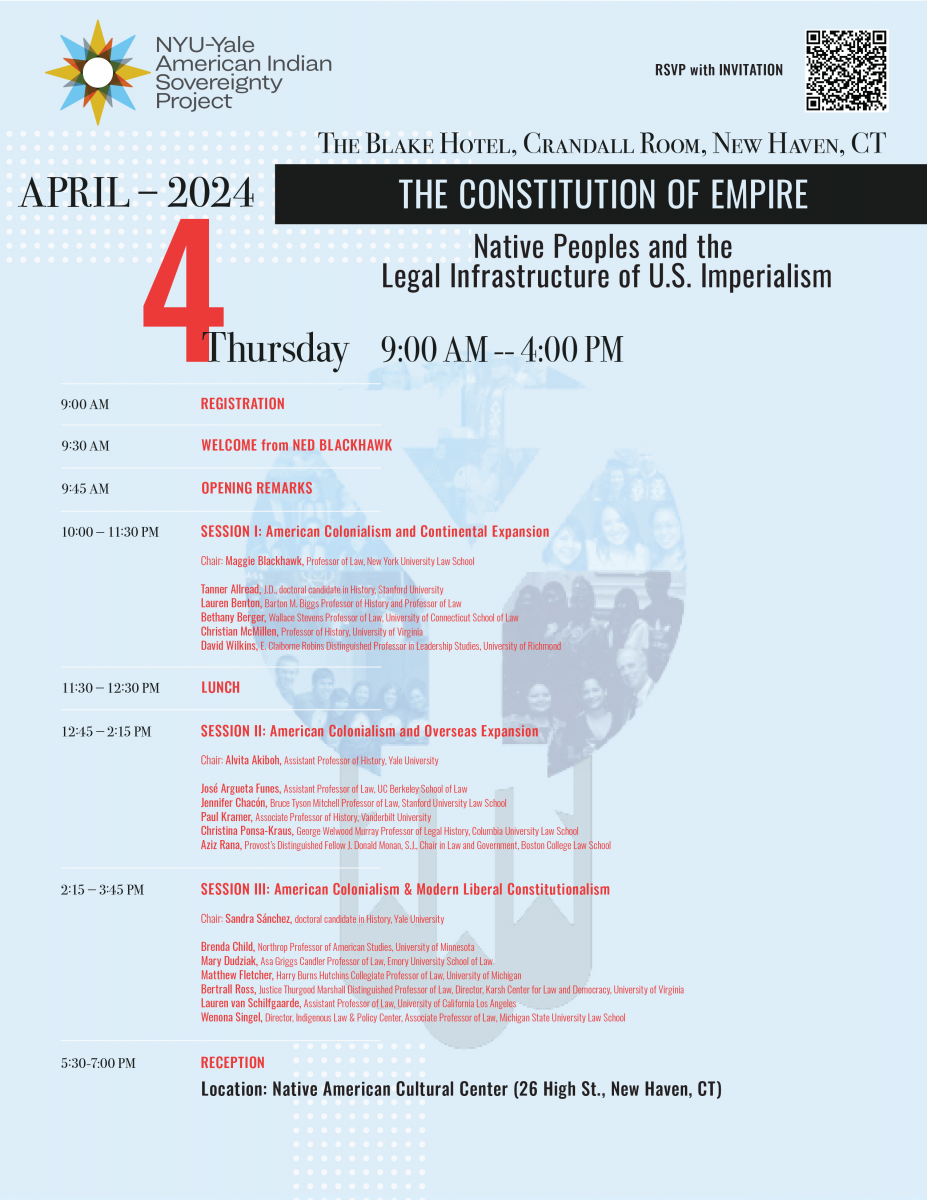
This year’s NYU-Yale American Indian Sovereingty Project spring workshop offers an extended opportunity to explore the legacies and contemporary forms of American colonialism. Building upon this year’s Harvard Law Review Foreword, “The Constitution of American Colonialism,” by Project Co-Director Maggie Blackhawk, the workshop invites participants to see federal Indian law and American colonialism in more expansive temporal, spatial, and legal forms. It seeks to link the forms, doctrines, and practices of North American continental colonialism with those of United States “overseas” imperialism, interrogating the rigid distinctions often drawn between “domestic” and “foreign” law and policy.
The workshop is one effort to examine the constitution of colonialism and explore its legal legacies. Held on the hundredth anniversary of the Indian Citizenship Act (1924) and within an interdisciplinary context, the workshop brings scholars working across a range of areas, fields, and specialties. Thursday features three sessions organized around major themes and facilitated by Sovereignty Project members.
Session I, “American Colonialism and Continental Expansion,” broadly interrogates how Indian affairs and U.S. expansion shaped the evolution of U.S. constitutional law across the nineteenth century. Session II, “American Colonialism and Overseas Expansion,” focuses on how domestic settler governance over Indigenous peoples and the legal infrastructure of expansion impacted the extension of U.S. imperial power into Alaska and also beyond North America. While Session III, “American Colonialism & Modern Liberal Constitutionalism,” asks how U.S. colonialism has and has not shaped modern approaches to liberal constitutionalism in the twentieth century—most notably in those areas of constitutionalism deemed “external” like immigration, foreign affairs, the war on terror, &c.